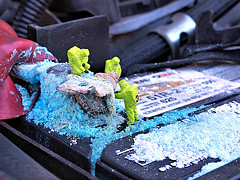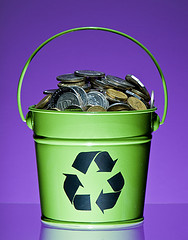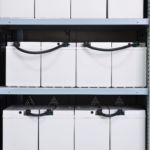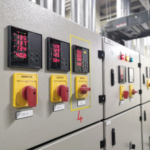All batteries, even rechargeable ones, stop working eventually. When a battery is no longer doing its job, there is only one thing to do: recycle. A closer look at how batteries work, as well as what happens to them when they are recycled, helps us to understand why this step is so crucial.
Why Lead-Acid Batteries Stop Working
 All rechargeable batteries work by producing chemical reactions, and each new charge and discharge makes minute permanent changes to the battery’s chemical structure. In lead-acid batteries, the most popular choice for vehicles and industrial situations, the breakdown occurs because of a chemical reaction between the lead and the sulfuric acid in the battery. The two substances form a third substance called lead sulfite, and as the battery gets older, the lead sulfite starts to form crystals inside the battery. Because the battery is no longer able to use the lead and sulfuric acid in the crystals, the battery’s functionality goes down until the crystals get big enough to render the battery entirely useless.
All rechargeable batteries work by producing chemical reactions, and each new charge and discharge makes minute permanent changes to the battery’s chemical structure. In lead-acid batteries, the most popular choice for vehicles and industrial situations, the breakdown occurs because of a chemical reaction between the lead and the sulfuric acid in the battery. The two substances form a third substance called lead sulfite, and as the battery gets older, the lead sulfite starts to form crystals inside the battery. Because the battery is no longer able to use the lead and sulfuric acid in the crystals, the battery’s functionality goes down until the crystals get big enough to render the battery entirely useless.
Why Lead-Acid Batteries Must Be Recycled
Even VRLA batteries, which do not contain liquid, contain dangerous chemicals. Lead and sulfuric acid, the major components in lead-acid batteries, are both highly toxic to humans. Lead is a known poison, and sulfuric acid is corrosive and can cause severe chemical burns. If batteries are not properly disposed of, they can break open and leak into groundwater, polluting the environment and causing serious health concerns.
For these reasons, the law dictates that large batteries (such as vehicle and UPS batteries) must be recycled. Failure to do so can result in big fines or even jail time.
How To Recycle Lead-Acid Batteries
Luckily, consumers are not the only ones told to recycle batteries by lawmakers. Throughout the United States, retailers are required to take back batteries for recycling. Such retailers include automotive companies and companies that sell larger batteries for UPS and grid power purposes.
Some companies may ask you to pay for battery recycling or may require that you purchase a new battery in order to take advantage of recycling programs. Sure Power goes a step further than simply offering recycling by supplying $5 million liability protection and de-installation to customers. You can find out more here.
However you determine to recycle your dead batteries, it is your responsibility to make sure that you select a company that adheres to federal, state and local regulations. Sure Power ensures that batteries are disposed of properly by tracking the batteries from the time we take possession until proof of reclamation is obtained.
Certain cities or counties also supply recycling centers that may take back UPS batteries and other large batteries. Some areas put a refundable deposit onto the original price of batteries in order to encourage recycling.
What Happens To Recycled Batteries

Not only can used batteries hurt the environment and the people that live in it, unsafe battery disposal could get you and your business in trouble. Whether you choose to take your lead-acid battery to a collection center or have a provider come in and de-install it safely, remember to always recycle.





